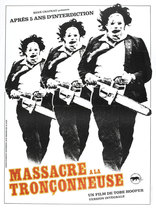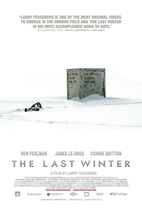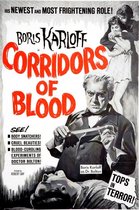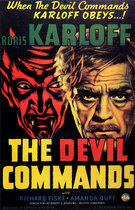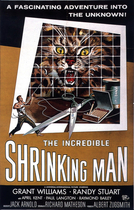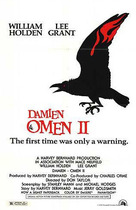Our editor-in-chief Nate Yapp is proud to have contributed to the new book Hidden Horror: A Celebration of 101 Underrated and Overlooked Fright Flicks, edited by Aaron Christensen. Another contributors include Anthony Timpone, B.J. Colangelo, Dave Alexander, Classic-Horror.com's own Robert C. Ring and John W. Bowen. Pick up a copy today from Amazon.com!
Chris Justice
Born and raised in New Jersey (Exit 9), I live, after an enchanting two-year detour in New Mexico, with my wife and two children in a farmhouse built in 1939 in Owings Mills, Maryland. During the day, I'm the Director of Expository Writing at the University of Baltimore; at night, on weekends, and during other flashes of inspiration, I'm a freelance writer.
Hoping to never fit in anywhere, when I'm not teaching, watching horror films, or writing, I can usually be found fishing, hiking, reading, plucking my bass, rooting for the 49ers or Devils, or chillin' with my wife and kids.
I also enjoy spreading government conspiracies and talking to myself in mall parking lots. A humanist and liberal arts nerd at heart, there is little I find boring. Not too many nights pass without at least one dream-episode involving some type of monster registering in my unconscious. Last night it was rabid chipmunks; the night before, the ghost of my Little League coach, who turned zombie, then became lunch for a giant squid.
I hold a master's degree in Modern Studies from Loyola College and a bachelor's in English from Rutgers University. While living in Albuquerque, I earned teacher certification in Secondary English Education at the University of New Mexico and recently completed a Certificate in Online Journalism from the University of Massachusetts Amherst. I formerly served as an Assistant Professor of English and Mass Communication at The Community College of Baltimore County.
Once a staff writer for Greater Media Newspapers in New Jersey, my words have since appeared in The Baltimore Sun, Senses of Cinema, PopMatters, Bay Weekly, Slow Trains Literary Journal, and Blue Ridge Country. My monthly column, The Tackle Box, was featured in PopMatters from 2007-2009 and focused on how the sport of fishing has been portrayed in popular culture. I also recently completed the following book chapters, which have appeared (or will appear) in upcoming anthologies: one about the sexploitation films of Edgar G. Ulmer; one about the role of travel and family vacations in Michael Haneke's films; another about the Back to the Future trilogy and its relationship to Ronald Reagan's political rhetoric; one about Joseph H. Lewis' seminal lovers on the run film, Gun Crazy; and finally, another about how depictions of the Arctic helped define and establish the mise-en-scene of eco-horror films. I'm also working on several creative writing projects.
Posts by Chris Justice




